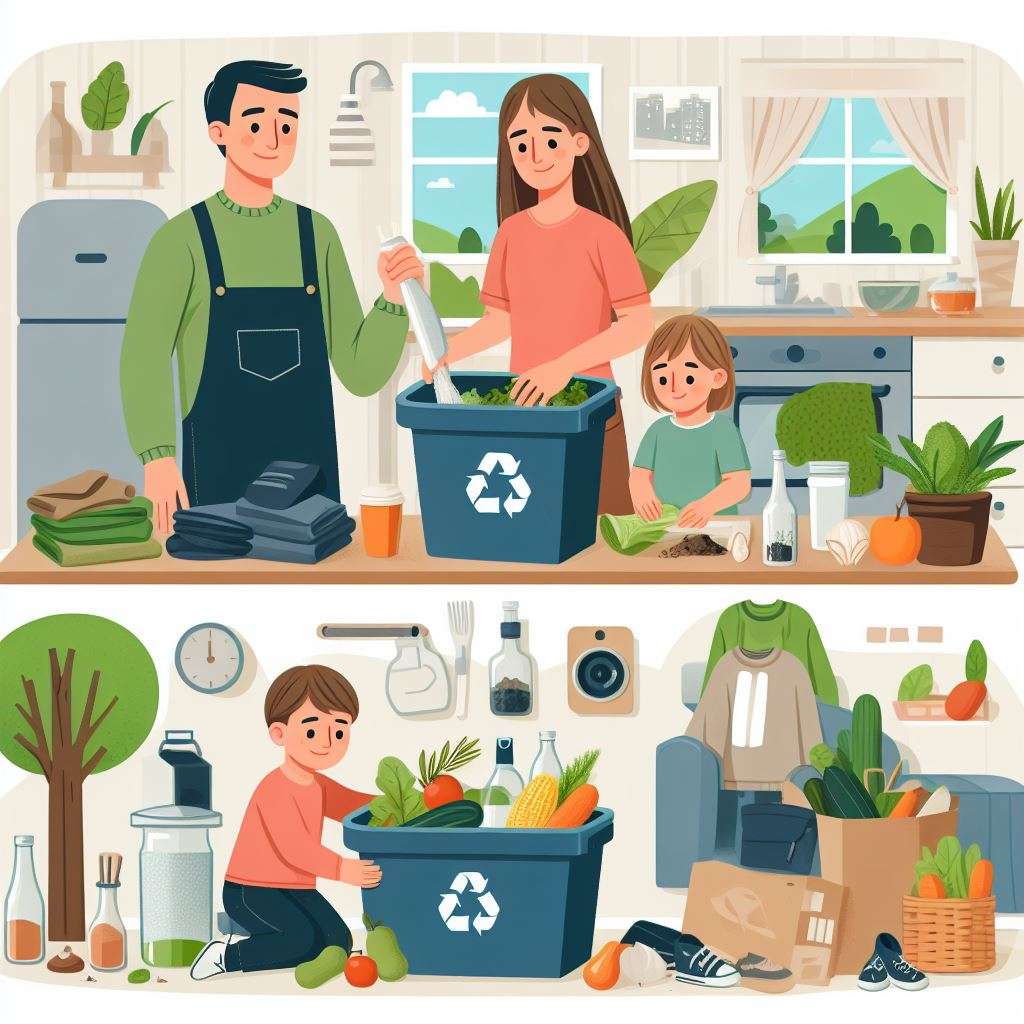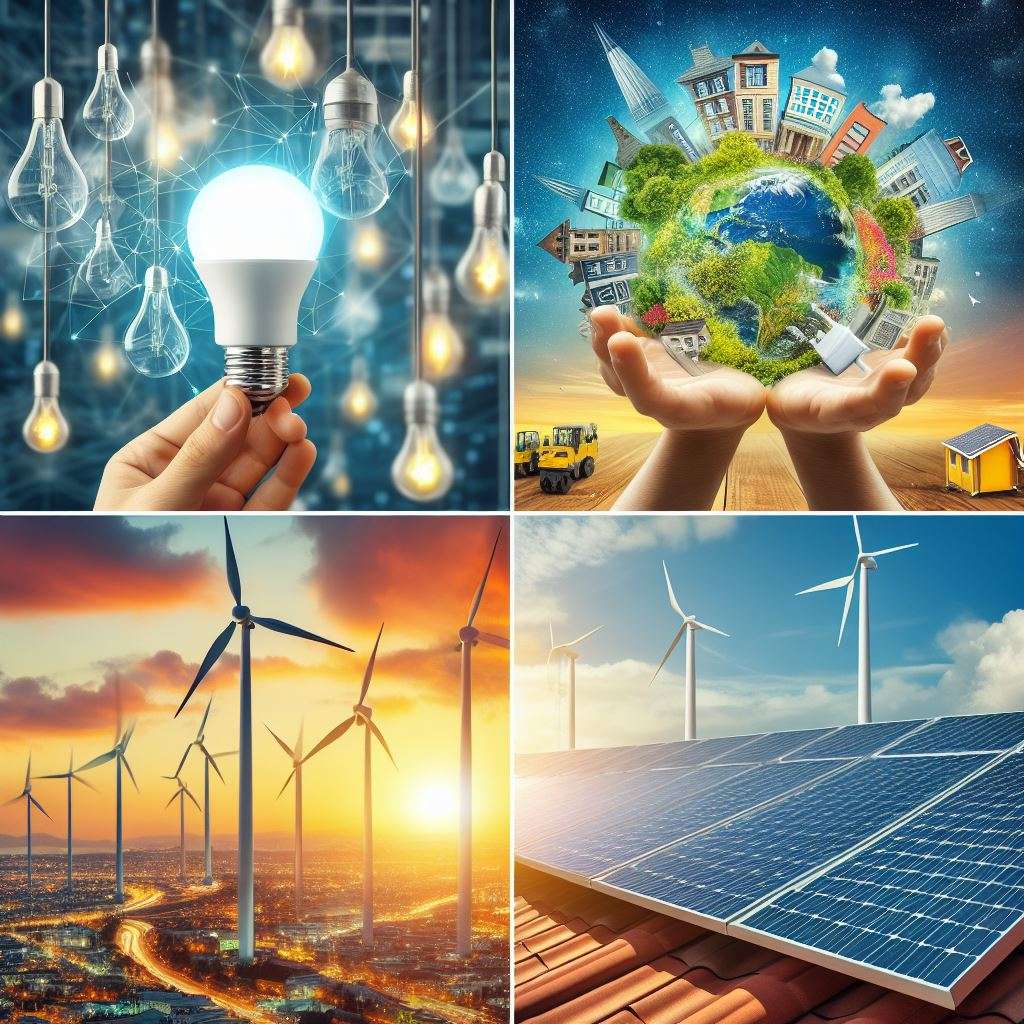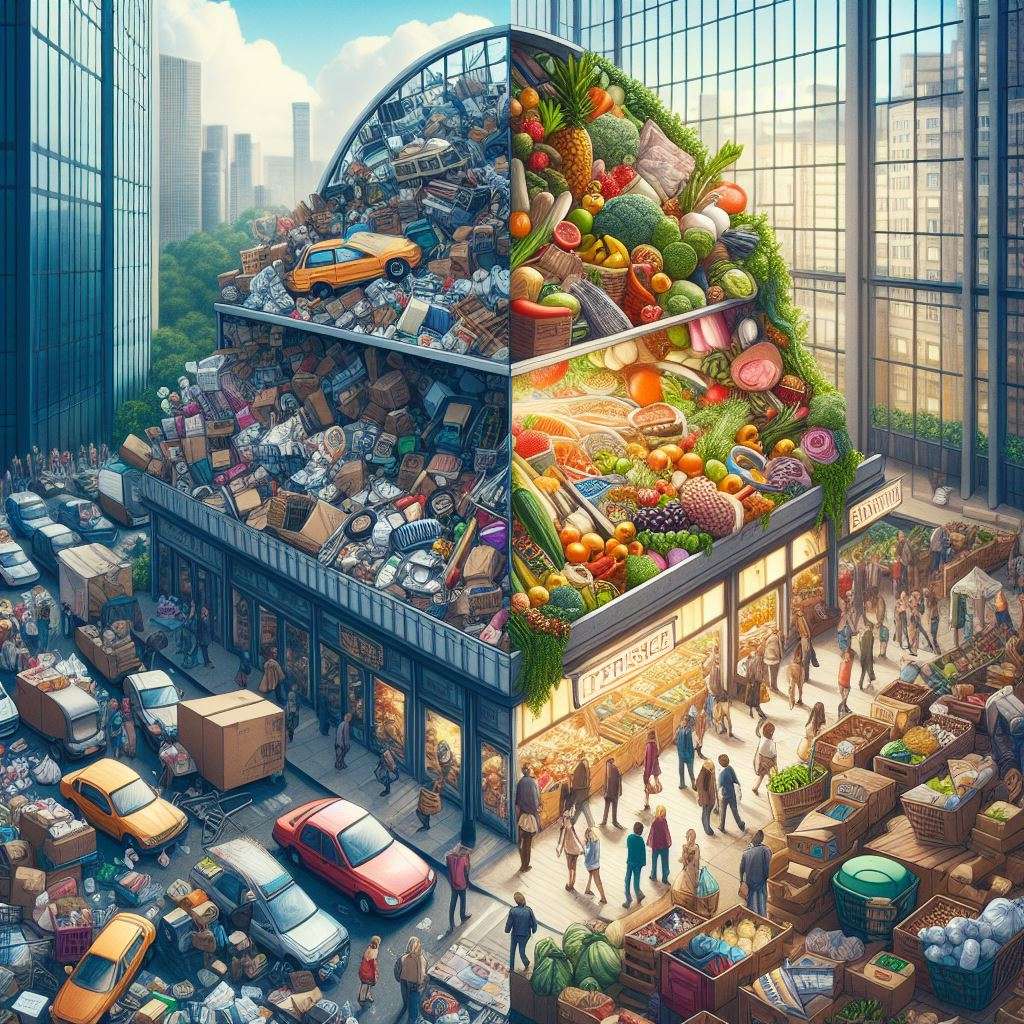Did you know that the world’s glaciers are melting at an alarming rate, threatening the lives of millions of people and animals? Or that every year, about 8 million tons of plastic end up in our oceans, harming marine life and ecosystems? These are just some of the shocking facts that reveal the current state of environmental degradation that we are facing today.
But there is hope. We can all become eco-warriors and take everyday actions that can make a significant impact on the health of our planet. Eco-warriors are not superheroes or activists, but ordinary people who care about the environment and want to do their part in protecting it. Eco-warriors are aware of the consequences of their choices and habits, and they strive to adopt more sustainable and eco-friendly practices in their daily lives.
This article will explore the key areas of everyday life where we can make eco-friendly choices and become eco-warriors. We will also share some practical tips, challenges, and benefits of green living. Whether you are a beginner or a veteran in eco-friendly living, we hope that this article will inspire you to take action and join the eco-warrior movement.

Homefront Heroes
One of the first and easiest steps to becoming an eco-warrior is to reduce the amount of waste that we produce at home. Household waste is a major contributor to landfills, which emit greenhouse gases and pollute the soil and water. According to the World Bank, global waste generation is expected to increase by 70% by 2050, unless we take urgent action to reduce it.
Here are some actionable steps that you can take to reduce your waste at home:
- Compost your food scraps and organic waste. Composting is a natural process that turns organic matter into nutrient-rich soil that can be used for gardening or farming. Composting reduces the amount of waste that goes to landfills and also helps improve soil quality and biodiversity.
- Use reusable bags instead of plastic bags when you go shopping. Plastic bags are one of the most common items that end up in the oceans, where they can choke, entangle, or injure marine animals. Reusable bags are more durable, eco-friendly, and cost-effective than plastic bags. You can also use reusable bags for other purposes, such as storing or carrying items.
- Minimize packaging when you buy or order products. Packaging materials, such as cardboard, plastic, or styrofoam, are often unnecessary and wasteful. They also take up a lot of space and resources to produce and transport. Whenever possible, choose products that have minimal or no packaging, or opt for recyclable or biodegradable packaging. You can also bring your containers or jars when you buy bulk items, such as grains, nuts, or spices.
- Upcycle your old or unwanted items into new and useful ones. Upcycling is a creative way of transforming waste materials into something of higher value or quality. For example, you can turn an old t-shirt into a tote bag, a wine bottle into a vase, or a tin can into a candle holder. Upcycling not only reduces waste but also saves money and unleashes your creativity.

To challenge yourself and measure your progress, you can audit your waste and set personal goals for reduction. For example, you can try to fit all your waste for a week into a single jar or aim to reduce your waste by 50% in a month. You can also track your waste using apps or online tools, such as My Zero Waste, Zero Waste Home, or JouleBug.By setting specific goals and tracking your progress, you can stay motivated and focused on reducing your waste. It’s a great way to challenge yourself and make a positive impact on the environment. Plus, it’s a rewarding feeling to see how much you can accomplish by making small changes in your daily habits. So go ahead, give it a try, and see how much waste you can cut out of your life!
Energy Escapades
Another important aspect of becoming an eco-warrior is to reduce our energy consumption and switch to renewable sources of energy. Energy consumption is directly linked to climate change, as most of the energy that we use comes from fossil fuels, such as coal, oil, or gas. Fossil fuels are non-renewable and finite resources that emit carbon dioxide and other greenhouse gases when burned. These gases trap heat in the atmosphere and cause global warming, which leads to extreme weather events, sea level rise, and loss of biodiversity.
Here are some simple ways to conserve energy and switch to renewable sources:
- Use LED bulbs instead of incandescent or fluorescent bulbs. LED bulbs are more energy-efficient, eco-friendly, and long-lasting than conventional bulbs. They use up to 80% less energy and last up to 25 times longer than incandescent bulbs. They also do not contain mercury or other harmful chemicals that can pollute the environment.
- Unplug unused electronics or use power strips with switches. Many electronics, such as chargers, laptops, or TVs, consume energy even when they are turned off or in standby mode. This is known as “vampire power” or “phantom load” and it can account for up to 10% of your electricity bill. To avoid this, you can unplug your devices when they are not in use, or use power strips with switches that can cut off the power supply to multiple devices at once.
- Optimize your heating/cooling systems and use natural ventilation. Heating and cooling systems are among the biggest energy consumers in households. To reduce their energy usage, you can adjust your thermostat settings, use programmable or smart thermostats, clean or replace your filters regularly, and seal any air leaks or gaps in your windows or doors. You can also use natural ventilation, such as opening your windows or using fans, to cool your home instead of using air conditioners.
- Invest in renewable energy options like solar panels or wind turbines. Renewable energy sources, such as solar, wind, hydro, or geothermal, are clean, green, and inexhaustible. They do not emit greenhouse gases or other pollutants, and they can reduce your dependence on fossil fuels. Renewable energy options are becoming more accessible and affordable, thanks to technological innovations and government incentives. You can install solar panels or wind turbines on your rooftop or backyard, or join a community solar or wind project, to generate your electricity and even sell the excess to the grid.

Transportation Transformation
Another key area where we can become eco-warriors is to change our transportation habits and choose more sustainable alternatives. Transportation is one of the major sources of greenhouse gas emissions and air pollution, as most of the vehicles that we use run on fossil fuels. According to the International Energy Agency, the transport sector accounted for 24% of global carbon dioxide emissions in 2019, and this figure is projected to increase by 60% by 2050 unless we take action to reduce it.
Here are some sustainable alternatives that you can choose to transform your transportation:
- Walk or cycle instead of driving or taking a taxi. Walking and cycling are not only eco-friendly but also healthy and fun ways of getting around. They do not emit any greenhouse gases or pollutants, and they can help you burn calories, improve your cardiovascular fitness, and boost your mood. You can also enjoy the scenery, explore new places, and interact with your surroundings. To make walking and cycling more convenient and safe, you can use maps, apps, or online tools, such as Walk Score, Bike Map, or Google Maps, to find the best routes, bike lanes, or trails in your area.
- Use public transportation instead of driving or flying. Public transportation, such as buses, trains, subways, or trams, are more energy-efficient, eco-friendly, and cost-effective than driving or flying. They can carry more people and use less fuel per passenger than individual vehicles. They can also reduce traffic congestion, noise pollution, and road accidents. To make public transportation more accessible and attractive, you can use apps or online tools, such as Moovit, Citymapper, or Transit, to find the best routes, schedules, or fares in your area.
- Carpool or use electric vehicles if you have to drive. Carpooling or sharing a ride with others is a simple way to reduce your carbon footprint and save money. By carpooling, you can split the fuel costs, reduce the number of vehicles on the road, and enjoy the company of your fellow travelers. You can use apps or online platforms, such as BlaBlaCar, Waze Carpool, or UberPool, to find or offer rides in your area. If you have to drive, you can also choose electric vehicles, which run on electricity instead of fossil fuels. Electric vehicles are more energy-efficient, eco-friendly, and cost-effective than conventional vehicles. They do not emit any tailpipe emissions or noise pollution, and they can be charged using renewable energy sources. You can also benefit from tax credits, rebates, or incentives for buying or using electric vehicles.
Consumer Champions
Another crucial area where we can become eco-warriors is to change our consumer habits and shop more sustainably. Consumerism is the culture of overconsumption and fast fashion, where we buy more than we need and discard things quickly. Consumerism is harmful to the environment, as it depletes natural resources, generates waste, and fuels greenhouse gas emissions. According to the World Economic Forum, the global consumption of materials reached 100 billion tons in 2017, and only 8.6% of it was recycled.
Here are some informed shopping habits that you can adopt to shop more sustainably:
- Choose local and organic products instead of imported or conventional ones. Local and organic products are more eco-friendly, as they reduce transportation and packaging costs and use less pesticides and fertilizers. They are also healthier, fresher, and tastier than imported or conventional ones. You can support local and organic farmers and producers by buying their products at farmers’ markets, co-ops, or online platforms, such as LocalHarvest, FarmersWeb, or Eat Local.
- Support ethical brands instead of fast fashion or mass-produced ones. Ethical brands are those that respect the environment and the people involved in the production process. They use sustainable materials, such as organic cotton, hemp, or bamboo, and employ fair trade, labor, and animal welfare practices. They also produce high-quality products that last longer and have less environmental impact. You can find and support ethical brands by using apps or online tools, such as Good On You, DoneGood, or Ethical Consumer.
- Buy quality over quantity and avoid impulse purchases. Quality over quantity means buying fewer but better products that meet your needs and preferences. Quality products are more durable, functional, and satisfying than quantity products. They also save you money and resources in the long run, as you do not have to replace them often or deal with repairs or maintenance. To buy quality over quantity, you can follow the 30-day rule, which suggests that you wait for 30 days before buying something that you want. This can help you avoid impulse purchases and only buy things that you really need or love.

Community Crusaders
The final and most powerful area where we can become eco-warriors is to join forces with our communities and take collective action for environmental change. Community action is the act of working together with others in our neighborhoods, cities, or regions to address common environmental issues or goals. Community action can amplify our efforts and create a larger impact on the environment. It can also foster social cohesion, civic engagement, and empowerment among the participants.
Here are some ways that you can participate in community action for environmental change:
- Join or organize local clean-up drives, tree-planting projects, or community gardens. These are some of the most common and effective forms of community action that can improve the environmental quality and beauty of your area. Clean-up drives can help remove litter and waste from your streets, parks, or waterways. Tree planting projects can help restore green spaces, increase biodiversity, and sequester carbon. Community gardens can help grow your own food, reduce food miles, and promote food security. You can join or organize these activities by using apps or online platforms, such as Litterati, Tree-Nation, or Share Waste.
- Advocate for eco-friendly policies and support businesses committed to sustainability. Policies and businesses are the key drivers of environmental change, as they shape the rules and practices that affect the environment. Policies can set standards, regulations, or incentives for environmental protection or improvement. Businesses can adopt sustainable practices, such as reducing waste, using renewable energy, or offering green products or services. You can advocate for eco-friendly policies and support businesses committed to sustainability by signing petitions, contacting your representatives, joining campaigns, or voting with your wallet. You can also use apps or online tools, such as Change.org, Greenpeace, or Ecosia, to find or start your initiatives.

Conclusion
We hope that this article has inspired you to embrace your role as an eco-warrior and take everyday actions for a healthier planet. Eco-warriors are not superheroes or activists, but ordinary people who care about the environment and want to do their part in protecting it. Eco-warriors are aware of the consequences of their choices and habits, and they strive to adopt more sustainable and eco-friendly practices in their daily lives.
